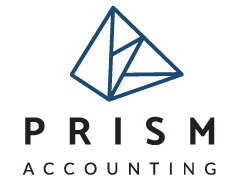Thomas and Naaz appeal against earlier NSW Civil and Administrative Tribunal (NCAT) decision was dismissed. The Appeal Panel of NCAT upheld the earlier decision confirming that medical practices may be liable for payroll tax in respect of payment made to doctors practising under service agreements.
In earlier decision, the Tribunal found Thomas and Naaz Pty Ltd, which operates four medical clinics in NSW, liable for $795,292.95 in payroll tax for the period from 1 July 2013 to 31 March 2018. Payroll tax liability was imposed in respect of the payments made by the clinics to the doctors from the Medicare benefits the clinics collected on the doctors’ behalf (after deducting the service fees).
The facts of the original case as well as the reasoning of NCAT were discussed in our earlier blog article: Thomas and Naaz Case: Payroll Tax Exposure Concern for Medical Practices
The appeal was heard by the Appeal Panel of NCAT on 25 March 2022 with the decision made on 6 July 2022.
Grounds of Thomas and Naaz Appeal
Thomas and Naaz Pty Ltd (the appellant) submitted several grounds for the appeal, which in substance were as follows:
(1) The Tribunal erred in applying s 35(1) of the Payroll Tax Act (NSW) to payments made by the medical practice to the doctors of amounts equal to 70% of Medicare benefits collected on their behalf.
(2) The Tribunal erred in law in finding that under the agreements the doctors provided service not only to their patients, but also to the practices;
(3) The Tribunal erred in law in finding that the agreements between the practice and each doctor were “relevant contracts” under the Payroll Tax Act.
(4) The agreements were not relevant contracts because the exemption in 32(2)(b)(i) applies (i.e. that the services performed by the doctors were of a kind not ordinarily required by the medical centre).
(5) The Tribunal erred in law in finding that the payments were “for or in relation to the performance of work relating to a relevant contact”.
(6) The Tribunal erred in law concluding that the payments were “wages” for the purpose of the Payroll Act.
(7) The Tribunal erred in law in not following the decision in Homefront Nursing arguing that the facts in the two cases “were relevantly indistinguishable”.
Decision of the Appeal Panel
Ground 1 (in conjunction with Ground 2 and 3), and Grounds 5 and 6 were dismissed on a legal technicality. These grounds were raised by the appellant on questions of law. However, the according to the Appeal Panel, the appellant submissions were questioning the factual findings of the Tribunal. As the appellant failed to demonstrate how the Tribunal erred in law and did not seek leave to appeal on any other grounds than questions of law, the arguments were rejected.
Ground 4 (that the exception in s 32(2)(b)(i) applies) was a new argument, and the appellant had to seek leave to rely on it. The Appeal Panel did not grant leave on the basis that the appellant already had an opportunity to run that argument in the first instance but chose not to do so (instead, they relied on the exception in 32(2)(b)(iv), which has a prerequisite that 32(2)(b)(i) does not apply). In any event, the Tribunal found that the exception did not apply and no challenge was brought on appeal against that conclusion of fact.
Ground 7 was also rejected as the Appeal Panel concluded that the Tribunal is not bound by the doctrine of precedent. It was under no legal obligation to follow Homefront Nursing as it was not decision of the Appeal Panel, the President or the Deputy President of the Tribunal.
Unfortunately, the decision in Thomas and Naaz appeal hardly provides any further clarity on the issue of payroll tax exposure to health practice owners. The grounds of the appeal were rejected because the Appeal Panel found them to be raising questions of facts rather than questions of law. We can only speculate whether the outcome would be different if the grounds were constructed and presented differently.
Until further guidance is provided by the Office of State Revenue, Thomas and Naaz and Optical Superstore cases will remain the leading authorities for payroll tax in the Healthcare industry. Medical practices engaging doctors under service agreements should take proactive steps by seeking advice from appropriately qualified lawyers and accountants to minimise their risk of payroll tax exposure.
Need Help?
Prism Accounting specialises in providing taxation and accounting services to medical and dental professionals. Contact us today to make an appointment with our specialist tax adviser.
Payroll Tax for medical practices cases:
Thomas and Naaz Pty Ltd v Chief Commissioner of State Revenue [2021] NSWCATAD 259 (Original)
Homefront Nursing Pty Ltd v Chief Commissioner of State Revenue [2019] NSWCATAD 145
Commissioner of State Revenue v The Optical Superstore Pty Ltd [2019] VSCA 197
Disclaimer: All the information provided on this website is of general nature and does not constitute tax, legal or financial advice. It does not take into account your personal circumstances and is not intended to replace consultation with a qualified professional.



